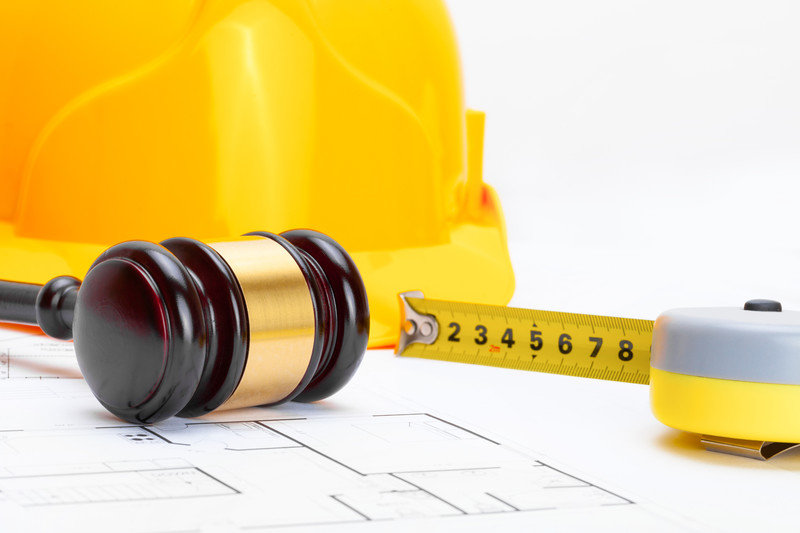How Does A Contractor Surety Bond Claims Work?

What Happens When A Surety Bond Claim Occurs?
A contractor surety bond is generally utilized to help ensure that both sides of the contract will live up to their ends of the arrangement. Of course, the world is not a perfect place and it is always possible for one side or the other to pull out or fail in one way or another. If this occurs, it is possible that a surety bond claim will occur. What precisely is a surety bond claim and how does it work? Below, you will learn all about the claim process.
Plaintiff or Complainant
If at any time the contractor or principal breeches on the terms and conditions of the contract, the obligee or project owner can file a claim with the surety. The obligee in this case will be known as the complainant, since they are the responsible party for suing the surety company. In some cases, the project owner has the contractual right to sue the principal, surety, or both.
How Is The Claim Filed?
The majority of the time, it will become the responsibility of the project owner to file the complaint. This can take place for a number of different reasons. The contractor may skip town and run off with the client’s down payment or fail to finish the project in a timely manner and ignore their calls. Also, a subcontractor or supplier, which has not been paid, may end up being forced to file a complaint again the contractor. If you fit into one of these categories, you will need to figure out precisely how the claim is filed, keeping in mind that your surety bond has NOT expired. To learn more about construction bonds expiring, click here.
In order to move ahead, you will need to find out which surety company bonded the offender in the first place. Generally, this information can be found within the contract. If not, you may need to go online and scour through the government database, until you’re able to track down the bonding company’s information and contact details.
Contact The Bonding Company
Once you’ve managed to obtain the surety company’s contact information, you should make direct contact with their claims advocate department right away. During this conversation, you should inquire about the claims process. In most circumstances, you will be required to submit a letter, which contains the details of the claim and provide proof that you lived up to your end of the bargain. Providing the bonding company with as much information as possible is highly recommended and will help to prevent delays in the future.
Once you’ve provided the company with this information, they’ll begin investigating the claim. Eventually, they’ll make a ruling and will either rule in the favor of the contractor or the project owner. If the surety company rules against you, it is always possible to take things one step further and enter into litigation against the contractor.
It is the surety’s responsibility to begin an immediate investigation after an alleged default has been made. It is always in the surety company’s best interest take immediate action, since this can push the contractor to keep the project moving and likely save themselves money in the process.
Watch the video below to learn more about how a claim is filed and dealt with.
Who Pays?
If you’ve submitted enough compelling evidence, it is highly probable that the surety company will rule in your favor. This is substantially easier than attempting to enter into litigation against the contractor or the surety. Once you’ve come out victorious the surety will pay you rapidly. Then, they’ll attempt to regain the collateral from the contractor, in order to cover their own losses.
Of course, the surety company has a few options and may instead decide to take matters into their own hands. If they decide to follow this route, they’ll be able to find a brand new contractor, who will then carry out the project, until it has completed in a satisfactory manner.
Who Is Sued?
Most of the time the surety company will agree that it is in their best interest to conclude the claim as quickly as possible. This will usually result in the bonding company ruling in the favor of the project owner very rapidly. Of course, this isn’t always the case. If the bonding company rules in the contractor’s favor, it is possible for the owner to file a suit against both entities. Otherwise, the surety can rule in the owner’s favor and sue the contractor, in order to recover their losses.
Conclusion
Although the bonds are set in place to attempt to encourage success and quell problems, a problematic situation may still occur. Rest assured knowing that a lawsuit is not your only solution, in the event of a problem. Instead, you should first speak with the ConstructionBond Canadian Construction bonding company and allow them or speak to your broker to initiate a further investigation regarding the claim. If they rule in your favor, the problem will be rectified. If not, you may need to sue and attempt to recover your losses, but hopefully it’ll never go that far.
Other useful posts
- Guide to finding the perfect bonding company
- The Importance Of Your Surety Bond Claims Advocate
- Breaking down performance and payment bonds
- A comprehensive guide on how to Become bonded contractor
- Other types of bonds
- Performance bond insurance: Welcome to the big leagues
- What is a bond?
- What do construction bonds cover?
- What does it mean to be bonded?
- Qualifying for a surety bond as a contractor
- Why are construction bonds required?
- How to apply for a construction bond – A complete contractor’s guide
- How much do construction bonds cost?

